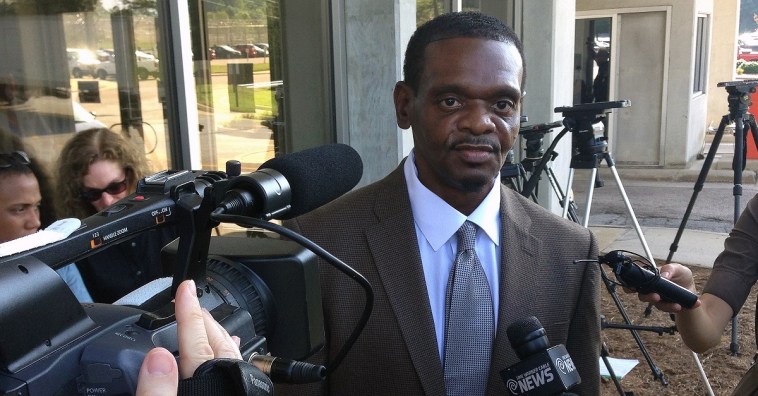Henry Lee McCollum and his half brother Leon Brown were released from a North Carolina prison Wednesday after DNA evidence showed they had been wrongly convicted in the savage rape and murder of an 11-year-old girl.
Videos By Rare
The two were jailed for three decades. McCollum was on death row. Notably McCollum and Brown are mentally disabled. Mr. Brown’s I.Q. in tests has registered as low as 51.
The news has reignited the conversation for some conservatives about the death penalty.
Marc Hyden, National Coordinator of the group Conservatives Concerned About the Death Penalty (CCATDP) released a statement on this story:
The release of two men from prison, one from death row, in North Carolina after more than 30 years following their wrongful convictions is merely the latest example of why conservatives like me are turning against the death penalty. North Carolina is attempting to resume executions, but this should serve as a prominent example as to why states need to think twice. The thought of the state executing an innocent person is reprehensible to conservatives, but that risk exists with the death penalty. As these men attempt to put their lives together after being wrongly incarcerated for over 30 years, we as a nation should consider whether the death penalty is worth the human and fiscal costs, while it fails to serve victims’ families and fails to prevent murder.
It’s a topic Mr. Hyden has addressed before at Rare.
Here’s why Hyden said we should be concerned about the death penalty:
- There is always the risk of executing an innocent person
- Death penalty cases are far more expensive
- It fails as a deterrent
- It turns the guilty party into a household name, while the victims are forgotten
- Incompetent governance is shrouding methods in secrecy
“If you can’t trust the government about healthcare, how can we trust it with the death penalty?” Hyden added. “To accept the death penalty you need to say what kind of collateral damage you’re willing to accept.”
In this case, the collateral damage was two men losing three decades of their lives and until recently, those lives being ended.
The Huffington Post skewered Justice Antonin Scalia Tuesday for citing this case as a reason why the death penalty is warranted and necessary.
“For example, the case of an 11-year-old girl raped by four men and then killed by stuffing her panties down her throat,” Scalia wrote in a Callins v. Collins opinion. “How enviable a quiet death by lethal injection compared with that!”
Scalia is correct to note that a crime like this one deserves the death penalty, but the problem, especially for the pre-DNA world, was: How do we know for sure that we have the right person on death row?
Now that we have DNA testing, guilt can be more certain. But then there are other considerations, like cost and need.
There is also the consideration of the guilty person.
Pope St. John Paul II addressed the death penalty in his encyclical Evangelium Vitae and pointed to prison security as a reason why we don’t need it.
“The nature and extent of the punishment must be carefully evaluated and decided upon, and ought not go to the extreme of executing the offender except in cases of absolute necessity,” he wrote. “In other words, when it would not be possible otherwise to defend society. Today however, as a result of steady improvements in the organization of the penal system, such cases are very rare, if not practically non-existent.”
“Modern society,” he continued, “in fact has the means of effectively suppressing crime by rendering criminals harmless without definitively denying them the chance to reform.”
If people are still being exonerated from death row in the year 2014, shouldn’t that be enough to start a conversation about the death penalty?

